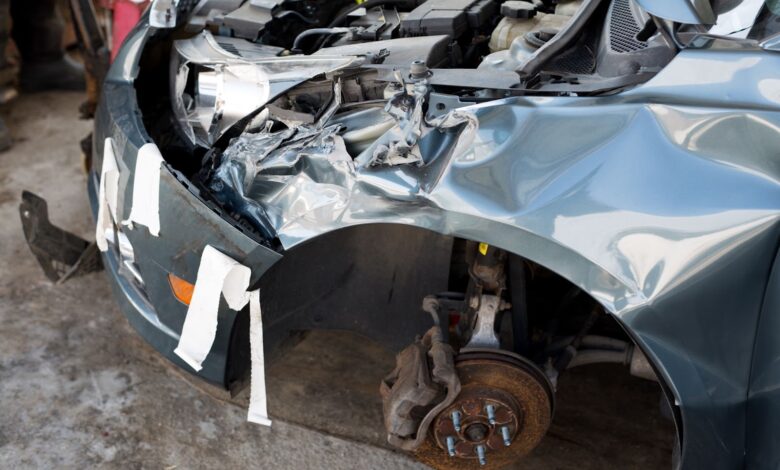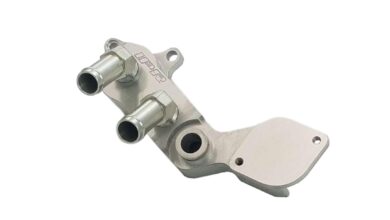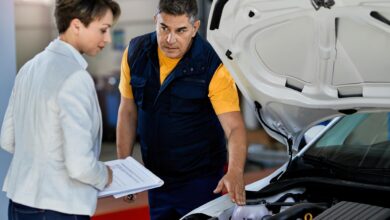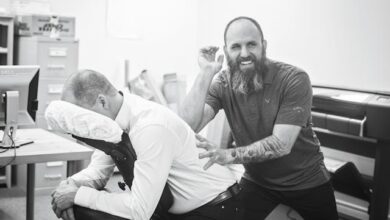Unibody Damage Meaning: What It Is and Why It Matters

Unibody damage refers to structural harm to a vehicle’s unibody frame, which is a single-piece construction that integrates the body and frame into one cohesive structure. Unlike older body-on-frame designs, unibody construction provides better crash safety, improved handling, and lighter weight, making it a common choice for modern vehicles.
When a vehicle sustains unibody damage, its structural integrity is compromised, potentially affecting safety, performance, and resale value. If you suspect your car has unibody damage, seeking professional evaluation and repair is critical. Our experts specialize in addressing structural damage to ensure your vehicle is safe and road-ready. For trusted San Diego auto body repair, visit our shop or contact us for a free consultation today.
What Causes Unibody Damage?
1. Accidents and Collisions
The most common cause of unibody damage is vehicular accidents, particularly high-impact collisions. Even low-speed impacts can bend or crack the unibody frame, leading to misalignment and compromised safety features.
2. Poor Road Conditions
Driving on rough or uneven terrain can gradually weaken the unibody structure. Potholes, speed bumps, and curbs can all contribute to stress and potential damage over time.
3. Improper Repairs
Previous repairs that were not performed correctly can leave the unibody vulnerable. Substandard welding, alignment issues, or using non-OEM parts can exacerbate damage.
4. Rust and Corrosion
Exposure to moisture and road salt can lead to rust, which weakens the unibody frame. Over time, corrosion can cause cracks or holes in the structure, affecting the car’s stability.
Signs of Unibody Damage
Recognizing unibody damage early is essential to prevent further complications. Common signs include:
- Misaligned Panels: Gaps or uneven alignment between doors, hood, or trunk.
- Uneven Tire Wear: Often caused by a misaligned frame or suspension issues.
- Steering Problems: Difficulty in steering straight or a noticeable pull to one side.
- Unusual Noises: Creaking or rattling sounds from the frame while driving.
- Visible Frame Damage: Dents, cracks, or bends in the unibody structure.
If you notice any of these signs, schedule an inspection with a qualified repair shop immediately. Ignoring the damage can lead to safety risks and costly repairs.
How Unibody Damage Affects Your Vehicle
1. Safety Concerns
The unibody frame is designed to absorb and distribute impact energy during a crash. Damage to this structure reduces its ability to protect passengers, increasing the risk of injury.
2. Reduced Performance
A compromised frame can lead to alignment problems, affecting handling, braking, and overall drivability. This not only makes driving less enjoyable but also more dangerous.
3. Lower Resale Value
Unibody damage significantly impacts a car’s resale value, as potential buyers may be hesitant to purchase a vehicle with a history of structural issues.
4. Costly Repairs
Delaying repairs can lead to more extensive damage, increasing repair costs. Addressing unibody damage promptly can save you money and prevent further complications.
Repairing Unibody Damage
Fixing unibody damage requires specialized equipment and expertise. The repair process typically includes:
- Inspection: Technicians assess the extent of the damage using advanced diagnostic tools.
- Realignment: The frame is straightened to its original specifications using precision machinery.
- Welding and Reinforcement: Cracks or bends are repaired using high-strength welding techniques.
- Panel Replacement: Damaged panels are replaced with OEM or high-quality aftermarket parts.
At West Coast Auto Body & Paint, our team is equipped to handle all types of unibody repairs. With decades of experience, we ensure your vehicle is restored to its original condition, maintaining both safety and value.
Preventing Unibody Damage
While some causes of unibody damage are unavoidable, you can take steps to minimize the risk:
- Drive Carefully: Avoid aggressive driving and reduce speed when navigating rough terrain.
- Perform Regular Inspections: Schedule routine check-ups to identify potential issues early.
- Address Rust Promptly: Treat rust spots immediately to prevent corrosion from spreading.
- Choose Quality Repairs: Opt for trusted repair shops to ensure proper handling of any damage.
Conclusion
Understanding the meaning of unibody damage and addressing it promptly is crucial for maintaining your vehicle’s safety and performance. Whether it’s caused by a collision, rust, or improper repairs, unibody damage requires professional attention to restore your car’s structural integrity.
If you’re dealing with unibody damage, trust West Coast Auto Body & Paint for reliable and efficient repairs. With nearly 30 years of experience in San Diego auto body repair, we have the tools and expertise to get your car back on the road safely. Contact us today for a free quote or visit our shop to see how we can help restore your vehicle to its former glory.



